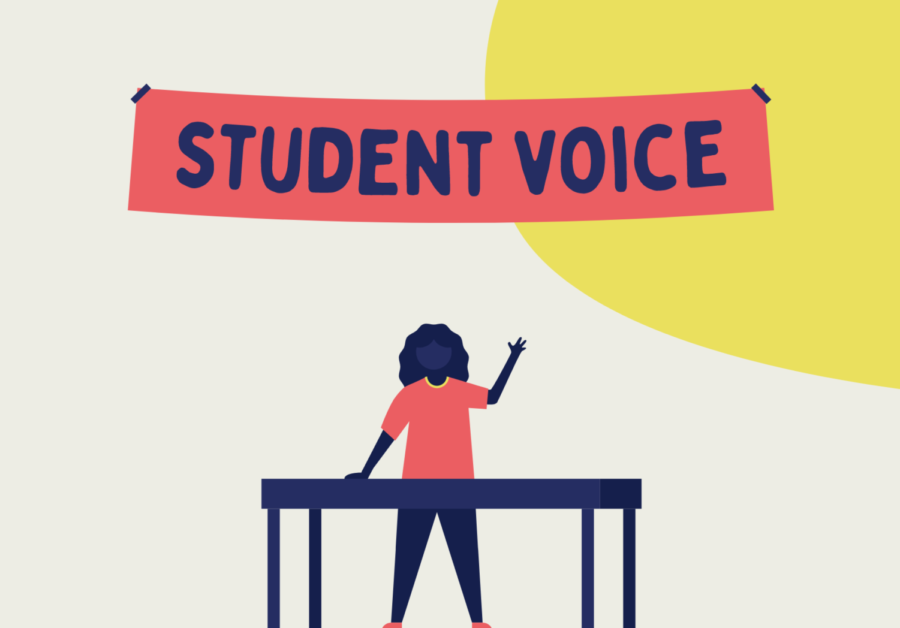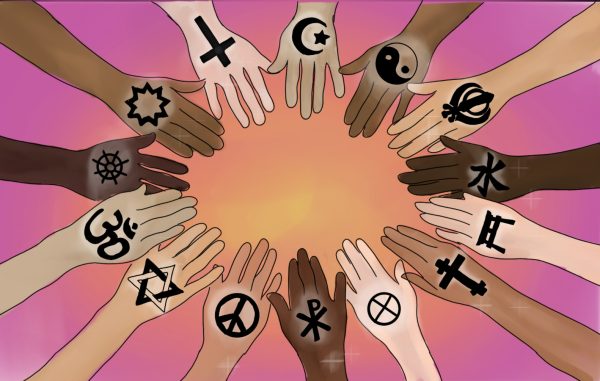The ‘Student’ in Student Voice
June 15, 2022
A buzzword uttered at almost every assembly; ‘Student Voice’ is the new trend in education. You hear it everywhere, from the executive team to the new college student newspaper! Empowering students by allowing free speech has become ‘the thing’. However, what does this really entail? And why does it really matter? No one has taken the time to explain it, but the college still claims that it exists. The ‘student’ in Student Voice is missing, and it’s about time that this changed.
Student Voice is a nod to pupils, acknowledging that we have our own perspectives on learning, teaching, and schooling. On paper, it seems like giving students the right to shape our own education and every little aspect of our school day.
While Student Voice is a simple concept in theory, its application will be unique for each school environment, and it requires consistent effort and communication from all parties involved. For Student Voice to flourish, students should not be afraid to share their true opinions and feedback to the higher-ups. A medium such as a student media initiative is a massive step in the right direction for true Student Voice to exist.
In Term 2 of 2022, Mr Clarke, the Head of Secondary, followed up his conversation about Student Voice with the college’s Community Problem Solving Team through an article – an extract from the Australian Educational Leader magazine, titled ‘Student Voice. Do Students Really Have a Voice at your school?’, providing insight into what the concept of Student Voice really should be, and how it should ideally be integrated into life at the college.
A few integral quotes from the Article (Student Voice Article) perfectly illustrate the phenomenon of Student Voice at WCC.
- “For starters, saying “We are giving kids a voice at our school” misses the mark. It is not about “giving” students voice. Students have always had voice. Yet, they have not always been heard.”
- “It is disheartening to see many schools proclaiming success with Student Voice when the actual efforts are cosmetic and sporadic. In such cases, Student Voice is relegated to a leadership club, a stand-alone event at the end of the week, or a counsellor activity.”
- “When Student Voice is actualised in schools, there are no accolades or fancy brochures announcing it. In fact, it is often the schools with less advertisement about their Student Voice that are the ones more effectively integrating it in their schools, that is because Student Voice is for the students.”
- “Noise (from students) comes in the form of complaints, self-centredness, whining, blaming others, expecting someone else to address issues, and closed mindedness. On the other hand, Student Voice is positive, outward thinking, genuine, proactive, knowledgeable, and solution oriented.”
At the end of the day, Student Voice will not exist without students. So, what do YOU define it as?
The Student Representative Council (SRC)? The ‘We Are’ Student Publication? The school-wide surveys distributed online?
The ‘Student’ in Student Voice is the most important part, and until there are efforts to utilise this freedom of speech from all parties, this buzzword means nothing but empty promises.













